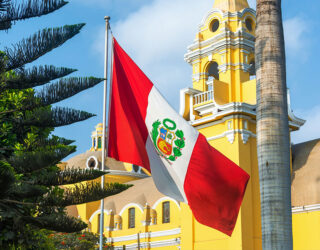Hotel developers or owners undertaking large hotel projects often need to top up their own funds or bank borrowing with additional or alternative financing. In some cases, especially for unique hotel assets or hotels attracting several competing operators, an option may be to have part of that financing provided by the hotel management company as key money.
Broadly speaking, key money is the delivery of funds by the hotel chain to the hotel project developer after that chain has been confirmed as the hotel’s management company, and it can also arise in relation to hotel franchise agreements.
To make that payment worth considering for the future manager, a few conditions must be met. The most common of these are: the developer’s recognized credibility, plans for the hotel to be in a prime or ultra prime area or destination, a high level of competition among operators for management of the hotel establishment and the highest category for the planned hotel. The hotel management company will also perform its own market research and profit projections and will need access to all the financial information related to the project to confirm its viability and the hotel’s ability to generate the necessary cash flows to cover operating expenses, capex, debt servicing costs, management fees and usually a refund of the key money. Without forgetting the security needed for recovery of the upfront payment.
Key money is, in short, the delivery of funds by the management company to help achieve the best conditions for completing the building or reform work and bringing the hotel into operation and to secure the desired conditions and quality standards for its management. It can also be agreed that the delivered funds will reduce or remove the need for any upfront payment that the developer has to make to the manager. Key money is never a gift. Instead, it is made, expressly or implicitly, with the intention of being recovered or as consideration for an obligation undertaken by the hotel owner. It must be negotiated and its essential parameters must be determined in the documents to be executed by the owner and the management company.
There are many alternative options for deciding on the legal structure of the payment, and the chosen alternative will have to appear in the management agreement as well as sometimes in additional agreements. These alternatives include: a loan, payment for an exclusive management right, acquisition of a minority interest in the share capital of the legal entity owning the hotel, payment by the management company as security for the correct provision of certain services, provision of preopening services or rolling-out services for an IT system at no cost or for less than the market price, acquisition by the manager of certain accommodation units to be operated as a condominium, or significant reduction to management fees for the first years of operation, among others. The key money can be treated in the agreement as one of these options or a combination of two or more.
Depending on the structure ultimately chosen for the key money and on whether it is expressly agreed that the hotel management company will recover it, one of the following alternative types of consideration may be determined: increase in management fees, extension of the management term, refund of the principal and interest, payment of dividends, revenues relating to the condominium, etc.
To cover the chance or risk of the developer’s insolvency or of failure to complete the work, the management company usually asks for security to ensure recovery of the key money, which may consist of a second or further mortgage on the property, or even a first mortgage on certain accommodation units or common areas in the hotel where they are registered separately, or a security interest in certain amounts of income or revenues that the project developer will obtain, among others. Additionally, clauses are usually included on partial or full recovery of the funds delivered by the hotel manager in the event of early termination of the hotel management arrangement.
The commercial purpose of key money is based on several goals: for the management company to support the hotel project with the intention of being chosen, to strengthen the project’s viability and achieve recovery of the funds delivered in a period equal to up to the term initially stipulated for the management agreement. There is a wide variety of options for the legal structuring of key money, however, and to make the correct choice you will have to take into consideration both the terms and conditions of the management agreement itself and the specific circumstances of the hotel project and business involved as well as the applicable law from the standpoint of the parties and the place where the hotel is located. Additionally, based on the chosen structure for the key money, the direct and indirect tax applicable to the upfront payment will have to be studied in depth along with how its recovery is addressed in the agreement.
Key money can in some cases and for certain hotel projects be a key component of negotiations for a hotel management agreement and is a very useful tool for the hotel developer or owner (to obtain additional funds) and for the hotel chain (to achieve hotel management for an asset it sees as strategic and enable viable operation).
Head of Tourism and Hotels industry






